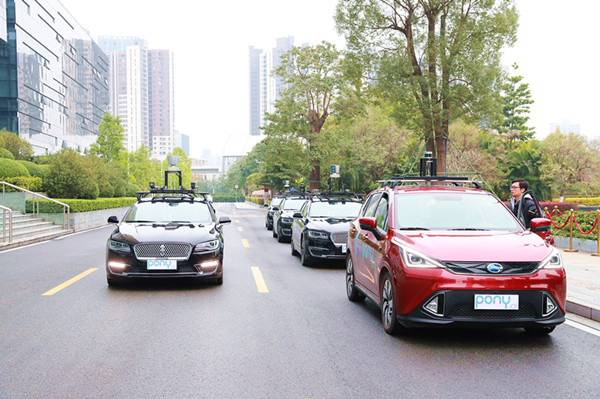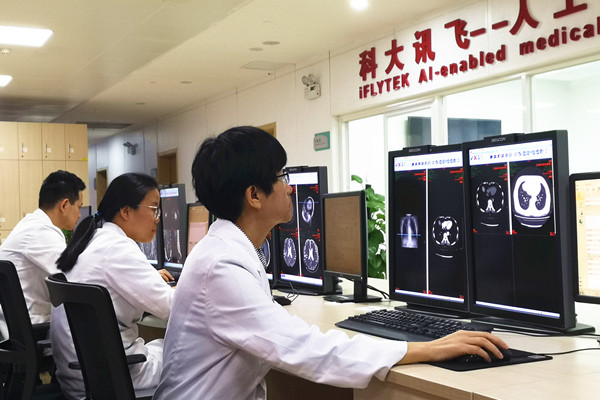Nansha district authorities released regulations on accelerating the road test of autonomous cars recently at a press conference on April 26, regarding responsible departments, application qualifications and procedures and accident management.
This makes Nansha the first region in Guangdong to put forward guidelines for road testing of self-driving cars, and shows the district’s determination to develop autonomous driving technology.

Pony.ai conducted a road test in Nansha earlier in February. [Photo provided to Newsgd.com]
Guo Sheng, Deputy Director of Construction and Transportation Bureau, said smart driving and related technologies have become core strategies for development in the auto business. “We encourage the R&D of connected and autonomous driving technologies. Releasing the guidelines is one move to attract related enterprises worldwide to settle in Nansha.”
In fact, a batch of enterprises including Pony.ai and ISCAS started their research in Nansha.
Peng Jun, CEO of Pony.ai said Nansha was a suitable location for the development of self-driving technology. “Apart from the support of the local government, we are also supported by the well-developed manufacturing and tech industries in Guangdong. Meanwhile, Nansha has suitable road conditions and weather for road tests,” he said.
According to Pony.ai, it will continue to work closely with the Nansha district government, and develop an autonomous ride-sharing fleet to serve the public in the Mingzhu Bay Area. This plan could be realized in 2 to 3 years.

Guangzhou Nansha Central Hospital has adopted iFLYTEK’s voice recognition and machine learning technologies in medical diagnosis. [Photo provided to Newsgd.com]
During the press conference, Gong Shangyun, Director of Nansha Industry, Technology and Information Bureau said Nansha had completed a three-year plan to develop AI technology in the district. “We will open certain amount of government data, and encourage AI application in areas such as transportation, social security and medical treatment,” said Gong.
AI technology already has an impact on people’s daily life. For example, Guangzhou Nansha Central Hospital has adopted iFLYTEK’s voice recognition and machine learning technologies to patient guidance, medical diagnosis and medical record writing. While Cloudwalk is offering its facial recognition technology to local police stations, banks and Guangzhou Baiyun Airport.
Reported by Jasmine Yin
Edited by Wing Zhang, Monica Liu, Simon Haywood

















